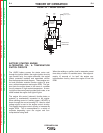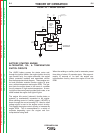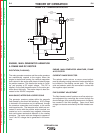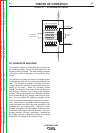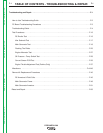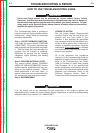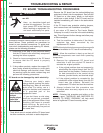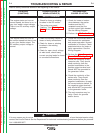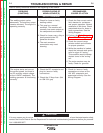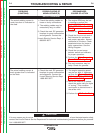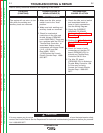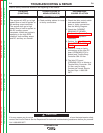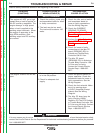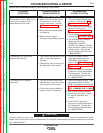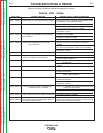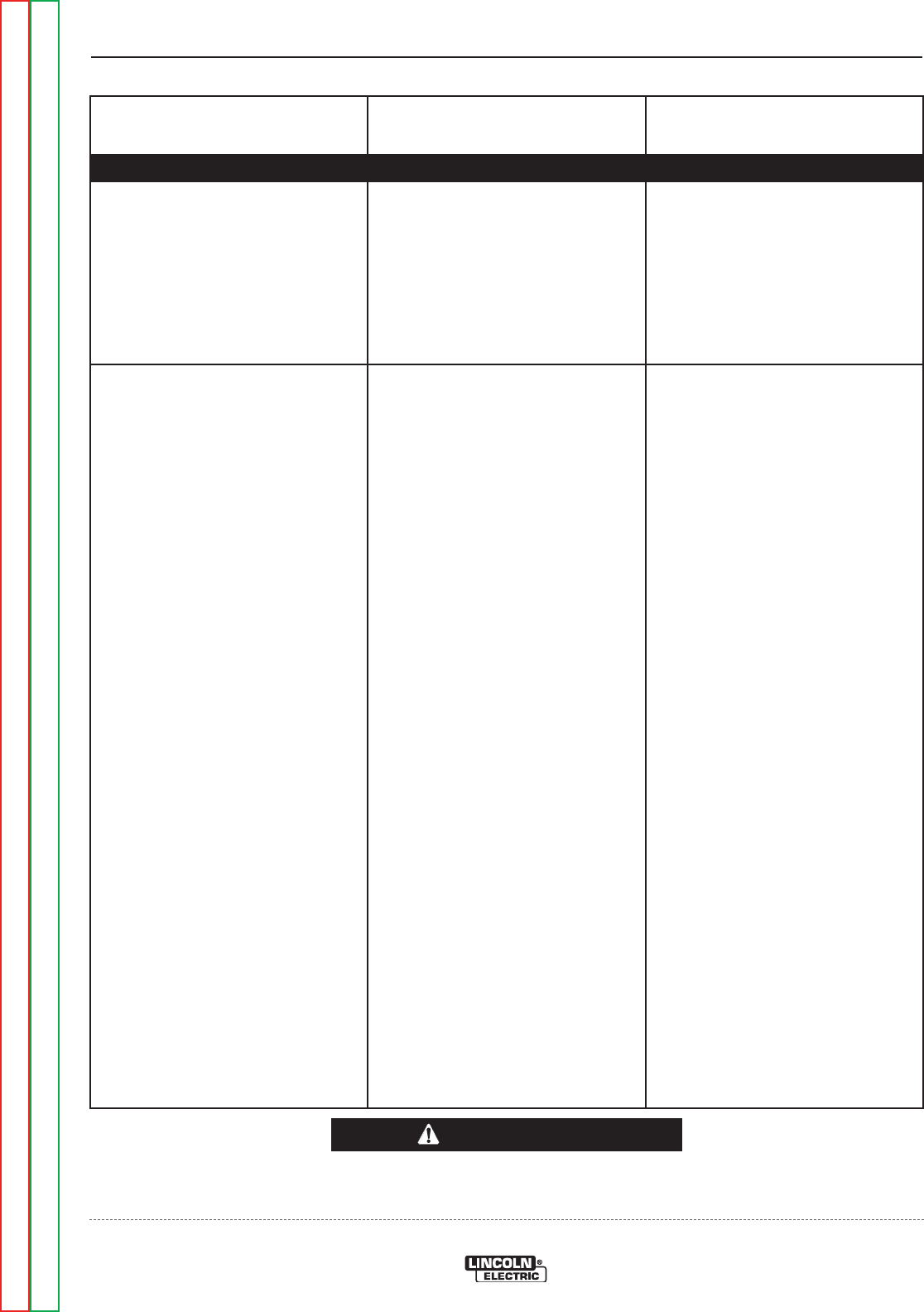
OUTPUT PROBLEMS
Observe Safety Guidelines detailed in the beginning of this manual.
PROBLEMS
(SYMPTOMS)
POSSIBLE AREAS OF
MISADJUSTMENT(S)
RECOMMENDED
COURSE OF ACTION
If for any reason you do not understand the test procedures or are unable to perform the tests/repairs safely,
contact the Lincoln Electric Service Department for technical troubleshooting assistance before you proceed.
Call 1-888-935-3877.
CAUTION
The engine starts and runs at
correct speed, but there is no, or
very low, welder output voltage.
There is no DC auxiliary output
voltage.
1. Check for loose or missing
brushes in the DC exciter.
2. The exciter may need
“flashing.” See Flashing the
Fields in this section.
1. Check for loose or broken
wires between the exciter
brushes and the DC
receptacle and the fine
current control field rheostat.
See the Wiring Diagram.
2. Perform the DC Exciter Test.
The engine starts and runs at
the correct speed but there is no,
or very low, welder output. The
DC auxiliary output voltage is
normal.
1. Check the welding cables for
loose or faulty connections.
2. Check for loose or missing
brushes in the welding
generator.
3. Check for open circuit voltage
at weld studs, check heavy
current carrying leads for loose
or corroded connections
1. Check the fine current control
field rheostat for resistance
and proper operation. Normal
resistance is 64 ohms. Check
associated wires for loose or
faulty connections. See the
Wiring Diagram.
2. Perform the Main Generator
Shunt Field Winding Test.
3. Check the continuity of the
interpole coils. They should
show continuity from the
positive brusholders to the
positive output terminal and
should NOT be grounded to
the generator frame.
4. Check the continuity of the
series coils. They should
show continuity from the
negative brusholders, through
the current selector switch, to
the negative output terminal
and should NOT be grounded
to the generator frame.
5. The main armature may be
faulty. Check for grounds
and/or shorts.
TROUBLESHOOTING & REPAIR
F-4 F-4
PIPELINER® 200
Return to Section TOC Return to Section TOC Return to Section TOC Return to Section TOC
Return to Master TOC Return to Master TOC Return to Master TOC Return to Master TOC



